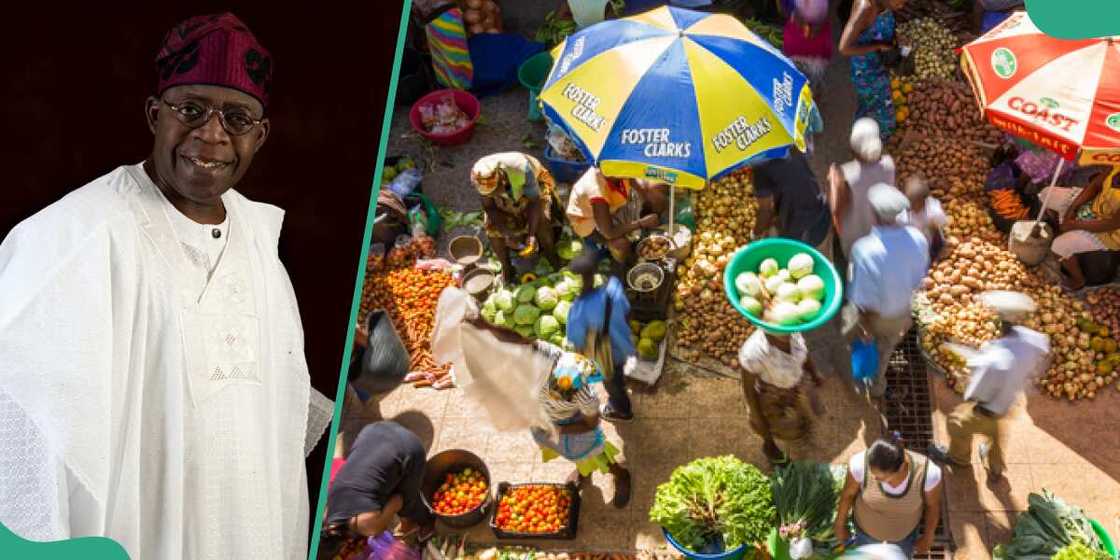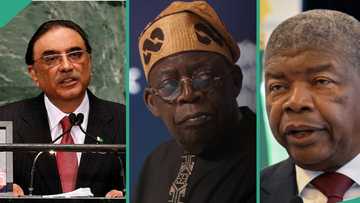Nigeria Leads Top 10 Africa Countries Expected to Drive GDP Growth in 2024
- Driven by its larger economies, Sub-Saharan Africa is seeing a comeback in 2024 despite weaker growth rates than in previous decades
- Based on recent reports, 70% of the region's countries will grow faster, while some countries will exhibit a slow growth rate
- Nigeria leads the list of countries expected to foster growth this year, followed by Ethiopia, Kenya and others
PAY ATTENTION: Leave your feedback about Legit.ng. Fill in this short form. Help us serve you better!
Legit.ng journalist Zainab Iwayemi has over three years of experience covering the Economy, Technology, and Capital Market.
Despite slower growth rates than in past decades, Sub-Saharan Africa is seeing a recovery in 2024, driven by its larger economies.

Source: Getty Images
A World Bank report anticipated that 70% of the region's countries would grow faster than average between 2000 and 2019 but that 50% would expand less quickly than usual.

Read also
Bill Gates’s firm to build $1bn data centre in another African country after closing Nigerian office
About 80% of the continent's growth is driven by the ten largest economies, with Nigeria, Côte d'Ivoire, Ethiopia, Kenya, and Ethiopia leading the way with 40% of the region's GDP.
The following 10 African nations, ranked by their contribution to regional GDP growth, are expected to lead GDP growth in 2024, according to a World Bank analysis titled "Addressing Inequality to Revitalize Growth and Alleviate Poverty in Africa."
Nigeria — contribution: 0.88%
Nigeria will continue to be the continent's economic powerhouse thanks to its broad economy, which includes oil, agriculture, telecommunications, and finance. Its enormous population and wealth of natural resources will also contribute to GDP growth.
Ethiopia — contribution: 0.39%
Ethiopia is driven by large investments in manufacturing, infrastructure, and agriculture. Because of its ambitions and advantageous position, the nation will be a major factor in the expansion of the regional economy.
Kenya — contribution: 0.25%
Kenya's diverse economy includes industries like technology, tourism, and agriculture. Kenya appears to gain from its advantageous location as a hub for trade and investment, which propels steady GDP development.
Côte d’Ivoire — contribution: 0.23%
Known for producing a lot of cocoa, Côte d'Ivoire has expanded its economy to include manufacturing, services, and mining. Economic growth has been fueled by the nation's pro-business policies and stable political climate, which have drawn substantial foreign investment.
South Africa — contribution: 0.21%
Despite issues like high unemployment and inequality, the nation continues to play a significant role in Africa's economy. Thanks to its robust industrial foundation, wealth of natural resources, and well-developed financial sector, South Africa is still one of the region's main drivers of GDP growth.
Tanzania — contribution: 0.19%
Tanzania's economy is supported by various industries, such as mining, tourism, and agriculture. The government's emphasis on infrastructure development and investment promotion has strengthened the economy, drawing foreign investors to the country.
Democratic Republic of Congo — contribution: 0.17%
The Democratic Republic of Congo is endowed with abundant natural resources, such as minerals and hydropower potential, even in spite of obstacles like political unpredictability and inadequate infrastructure. Constant attempts have been undertaken to improve governance and draw in investment, which will propel the nation's GDP growth.
Angola — contribution: 0.15%
Angola, the second-largest oil producer in Africa, is attempting to diversify its economy and lessen its reliance on oil exports. Angola is actively focusing on developing its mining, agriculture, and infrastructure to reduce its dependence on oil earnings and promote economic growth.
Uganda — contribution: 0.12%
The main industries of Uganda's economy are manufacturing, services, and agriculture. There is also a lot of room for expansion in industries like tourism and oil exploration. To support GDP growth, governments have made attempts to upgrade infrastructure and draw in foreign capital.
Ghana — contribution: 0.10%
Ghana's economy is supported by services, agriculture, and the production of gold, with an increasing emphasis on oil exploration. Investment has been drawn to Ghana due to stable administration and a favourable business climate, which has fueled GDP development and established Ghana as a major participant in the continent's economy.
Top Nigerian states with largest GDP
Legit.ng reported that under Governor Babajide Sanwo-Olu's leadership, Lagos state emerged as Nigeria's largest economy by Gross Domestic Product (GDP), boasting N41.17 trillion.
The top southwest state in Nigeria, Lagos, is followed by Rivers, Akwa Ibom, Imo and Delta states.
As reported by The Cable on Friday, May 3, 2024, Anambra, Ondo, and Ogun states trailed behind N5.14 trillion, N5.10 trillion, and N5.03 trillion, respectively.
Proofreading by James Ojo Adakole, journalist and copy editor at Legit.ng.
PAY ATTENTION: Donate to Legit Charity on Patreon. Your support matters!
Source: Legit.ng





